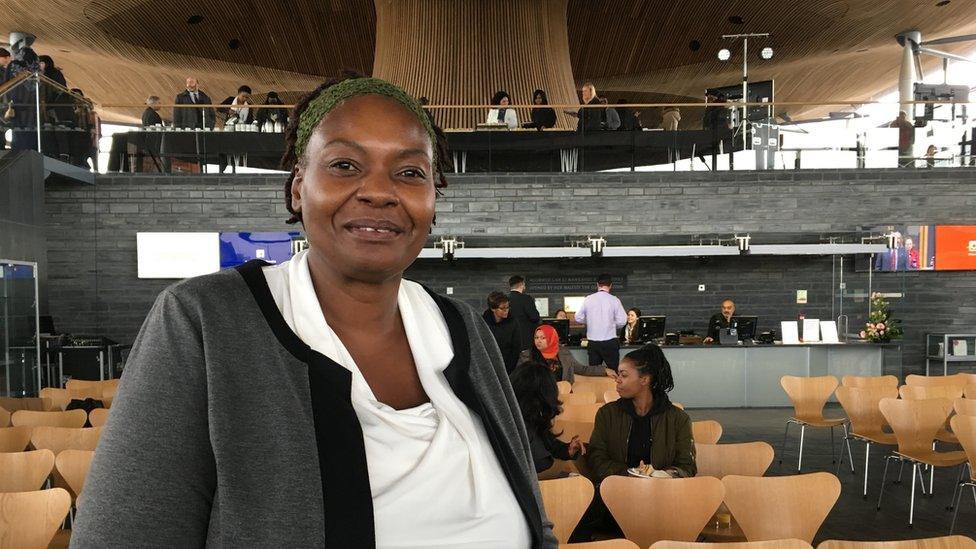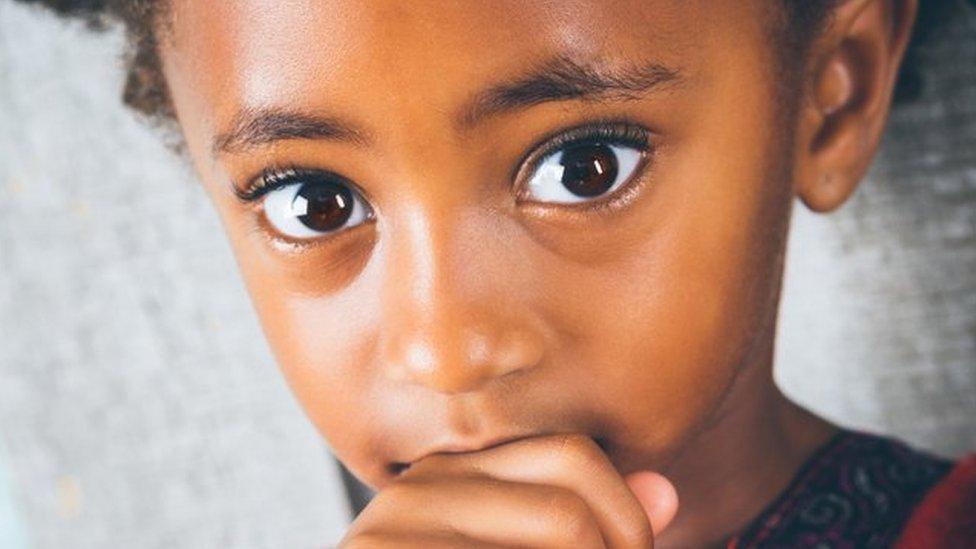Campaigners bid for FGM clinic in Wales
- Published

Campaigners want a dedicated clinic for victims of female genital mutilation (FGM) to be opened in Wales.
There are currently five drop-in clinics in England for victims of the practice, which affects an estimated 200 million women and girls worldwide.
But there is no such medical provision in Wales.
Now charity Bawso is working to open a pilot clinic at the Cardiff Royal Infirmary to provide medical and psychological help to survivors.
In 2014-15 Bawso supported 788 families affected by FGM in Wales which, according to the World Health Organization involves "the partial or total removal of the female external genitalia or other injury to the female genital organs for non-medical reasons".
Bawso, external's violence against women director Dr Mwenya Chima said: "In the UK there are women's clinics for women who have had FGM, for medical and psychological help. Survivors can just walk in and ask for help.
"But in Wales we don't have any of that. We are trying to make a case to health agencies that we need to have this kind of clinic, even if it is initially for one day a week for a year to see if there is a demand."

Dr Mwenya Chima wants a drop-in clinic to help victims of FGM in Wales
Dr Chima believes there is a big gap in the support provided, and that many survivors of FGM in Wales are not known about.
She said: "I worked with a young women recently - a survivor of FGM - who wanted medical help as she was having problems. Although she wanted help she was already in two minds about having anything done as she was going against her parents.
"We tried to get her help from the clinic in Bristol, but there were delays because she was outside the area, so in the end it didn't happen and she is still living with these problems now."
The call comes as the world marks the international day of zero tolerance to FGM - a UN-sponsored event to raise awareness of the issue.
Although it has been illegal to carry out FGM in the UK since 1985, there have been no successful prosecutions relating to the practice, which is carried out for cultural and religious reasons in certain communities.
- Published6 February 2017

- Published27 July 2015

- Published13 December 2016
